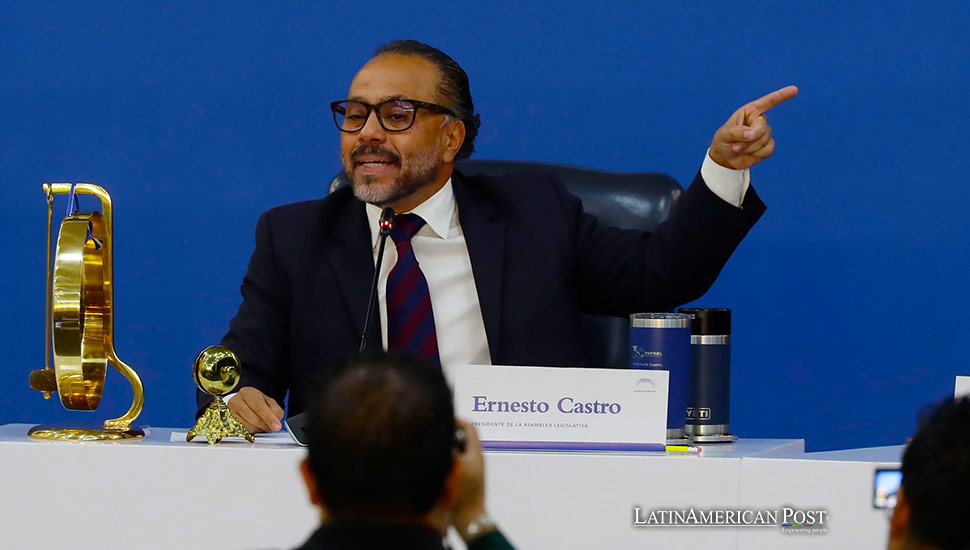El Salvador’s Assembly Passes Fast-Track Constitutional Reform

El Salvador’s Legislative Assembly approved a controversial amendment that could allow swift changes to the Constitution, sparking concerns about the consolidation of power as President Nayib Bukele’s party maintains a significant majority.
In a move that has ignited a firestorm of political debate, El Salvador’s Legislative Assembly has given its seal of approval to an amendment that revises how the Constitution, a document that has stood since 1983, can be amended. This change comes at a time when a new legislature, dominated by President Nayib Bukele’s Nuevas Ideas (NI) party, is about to assume power.
Constitutional Amendment Raises Concerns in El Salvador
Historically, the Salvadoran Constitution required any amendment to be approved with a simple majority in one legislative period and ratified by a two-thirds majority, or 56 out of 84 legislators, in a subsequent period. The newly approved amendment modifies the requirement, allowing constitutional changes to be approved and ratified by three-quarters of the deputies, or 45 out of 60, within the same legislative period.
The decision was passed with a majority vote of 66 from the ruling party against 16 votes from the opposition. This swift and decisive action occurred without prior study or analysis, reflecting a broader trend in Latin American politics where swift legislative actions under strong executive powers are becoming more common. The amendment was introduced to Congress just two days before the end of the current legislature’s term, leaving little time for thorough debate or public scrutiny.
The official justification for the amendment emphasizes the need for the government to possess “the necessary tools to face the social realities demanded by Salvadorans in response to the rapid changes the world is facing.” It also mentions enhancing the protection of fundamental rights through reinforced constitutional provisions.
Official Justification vs. Critics’ Concerns
However, critics see this move as a potential threat to democratic checks and balances in El Salvador. Claudia Ortiz, a representative from the opposition party VAMOS, accused the ruling party deputies of “self-prescribing power” and removing limits on governmental authority. “This is a betrayal of the people,” Ortiz charged, highlighting the arbitrary nature of the power consolidation by a group currently in control.
Ortiz also referenced past rulings from the Constitutional Chamber of the Supreme Court of Justice, which stipulated that constitutional amendments should occur before legislative elections. This process allows the electorate to support or reject the proposed changes through their votes. She accused the ruling party of adjusting the required number of votes to ratify constitutional changes to align with their electoral results from early March.
The reform was hurriedly introduced to Congress by NI party representatives just two days before the end of the current legislature’s term. Marcela Villatoro, from the opposition Nationalist Republican Alliance (ARENA), criticized the amendment in the congressional session as aiming for “express reforms” to the Constitution. “It is unfair to want to change the game’s rules at the last minute,” Villatoro argued.
The Nuevas Ideas party holds 56 out of 84 seats in the current legislature, supported by eight additional lawmakers from allied political parties. Following the reduced number of deputies in Congress, the ruling party will hold 54 of 60 seats in the next period, plus two allied deputies.
A Planned Course of Action
The path to this amendment began in September 2020 when President Bukele appointed his Vice President, Félix Ulloa, to coordinate the study and proposal of constitutional reforms. By September 2021, Bukele had received a draft proposal to amend over 200 articles of the Constitution. However, this document has yet to be formally presented to Congress.
Also read: El Salvador Building Airport Hotel via Blockchain Technology
This development in El Salvador is not an isolated incident, but part of a more significant regional trend where political leaders in Latin America consolidate power through legislative and constitutional maneuvers. Such changes often lead to concerns about the erosion of democratic norms and the potential for authoritarian practices. As El Salvador navigates these constitutional changes, the international community and domestic watchdogs will closely monitor the implications for governance, democratic integrity, and civil liberties, which could have far-reaching consequences for the region.




